Person Of Interest: The Art of putting Kant’s Philosophy into a Computer
Can an A.I. be Good or Evil? Can it be moral? Can it be human? These issues are tackled in many shows, and Person Of Interest is no exception. But it does so in a quite fascinating way.
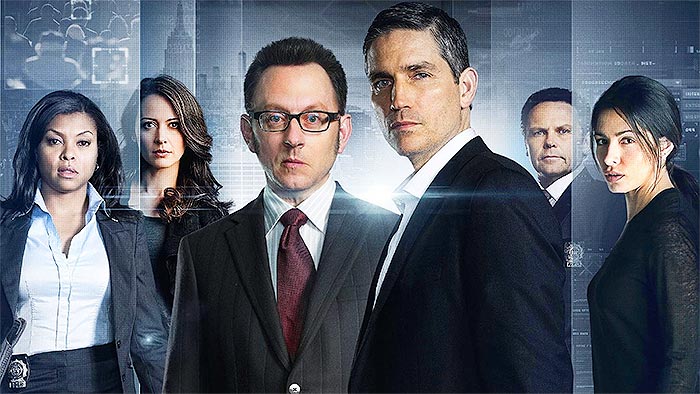
Person Of Interest is a show created by Johnathan Nolan (Westworld, Christopher’s brother – or is it obvious?) and J.J. Abrams, starring Jim Caviezel, Michael Emerson, Kevin Chapman, Taraji P. Henson, Amy Acker, and Sarah Shahi. The music is composed by Ramin Djawadi (Game Of Throne) and it aired on CBS from September 2011 to June 2016. For 103 episodes of about 40 minutes each, we follow a group of outcasts: ex-military, genius hackers, former blacks op soldiers, cops… Their mission is to prevent crimes before they even happen, thanks to an A.I. called The Machine. Here is how Harold Finch, one of the main protagonists, sums up the basics, in the first season’s opening:
“You are being watched. The government has a secret system: a machine that spies on you every hour of every day. I know, because I built it. I designed the Machine to detect acts of terror, but it sees everything. Violent crimes involving ordinary people; people like you. Crimes the government considered ‘irrelevant’. They wouldn’t act, so I decided I would. But I needed a partner, someone with the skills to intervene. Hunted by the authorities, we work in secret. You’ll never find us, but victim or perpetrator, if your number’s up… we’ll find you.“
First season’s opening
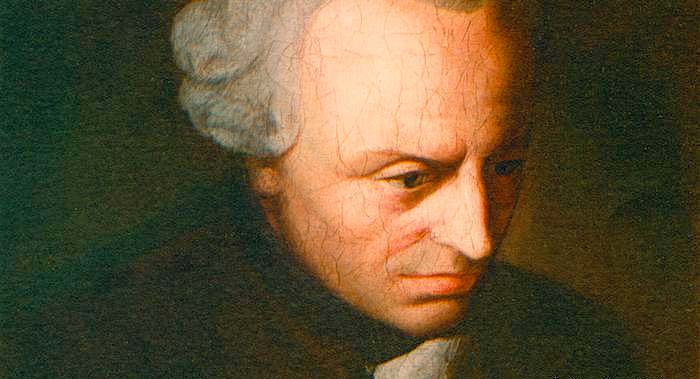
The show starts as a criminal drama, but it slowly evolves towards something more. Though the evolution may have thrown off some viewers, it also brings more depth to the story. The Machine is, at first, a simple pretext to start a new investigation in each episode. But, as the seasons went on, the A.I. became a catalyst to moral and ethical quandaries; quandaries about technologies, mass surveillance, right and wrong, life and death, good and evil, liberty and security, love. By the fifth season, The Machine had became an actual character, a character we are rooting for, a character with a voice and a heart. And, in this heart – though still made of lines of code – seems to be lying a bit of Immanuel Kant’s ethics.
To what extent can the A.Is. featured in the show embody Kant’s theory of Moral?
Can an A.I. be Good or Evil? Can it be moral? Though the show never gives an explicit answer – in many episode, Harold refers to his creation, as a “mistake”, a “crime”, while in others it is “the best [he] could do” – the way the Machine is humanized leads us, viewers, towards the possibility of Good and Evil in computers. The originality of the show is to do so in a way that opposes to the mainstream argument against a moral computer. Indeed, commonly, it is said that computers can’t be moral, or good, or bad, because their code – a set of objectives they must pursue in the most effective way regardless of feelings or moral, things that can’t be programmed – prevent them from. In Person Of Interest it is, however, that core-code that allows the Machine to be a moral being, in a very Kantian approach.
In the show’s third season, we are introduced to Samaritan, an entity that seems very similar to our beloved Machine, at first. The Machine and Samaritan are, indeed, two A.I.s originally built to prevent terrorist attacks on US soil, and both of them evolved towards something more, something potentially grander, potentially divine, potentially destructive. But where the Machine appears to be one of the good guys, following a “moral law”, Samaritan embodies the ultimate evil or “Radical Evil”.

In the episode “The Cold War” (4×10), the Machine and Samaritan have a chat through their human interfaces in God Mode. Early in the scene, the Machine states: “I was build with something you were not. A moral code.” But that moral code is not presented as a bunch of specific rules, it’s not the Ten Commandments for A.I.s, but it is, on the contrary, one simple – well simple… – “maxim”, to use Kant’s vocabulary. The show itself never uses that word as it is a philosophically charged notion and a rather abstract concept, but it uses, on several occasions, the words “constant purpose”. And that constant purpose can be seen as computer’s twin of Kant’s “Categorical Imperative”.
The Categorical Imperative is a rational, necessary, and unconditional principle, an ultimate commandment of reason, from which all duties and obligations – should – derive. There is here already a few resemblances with computer code, the guideline to said computer’s “purpose”. Of course, in Kant’s philosophy the Categorical Imperative is not material in anyway, it is not something you feel, it’s not something you analyze nor something you build or express. But the analogy still stands, as a metaphor.
In this perspective, the constant purpose – the “Categorical Imperative” – of the Machine is “to save lives” as our heroes keep reminding us. It is close to Kant’s idea – the “Human Formula” – that humans are not to be used as mere tools, but as an end in itself. In Groundwork of the Metaphysics of Morals, the German philosopher wrote:
“Act in such a way that you treat humanity, whether in your own person or in the person of another, always at the same time as an end and never simply as a means.”
Immanuel Kant, Groundwork of the Metaphysics of Morals
And that is what the Machine does. Saving humans, caring for them, is its own end, not a mean to achieve an ulterior goal – like world domination, for instance.

The game is an opportunity for Harold to teach the Machine a valuable lesson, which is, to quote him: “Chess is just a game, real people aren’t pieces, you can’t assign more value to some of them than to others”
[Screenshot from Person of Interest, season 4, episode 11. (Source)
Samaritan, on the other hand, does not have a “constant” purpose. As Harold puts it: “[Samaritan’s] rules have changes every time it was convenient to [him]” (“The Day The World Went Away” 5×10). Plus, it sees its people as mere pawns, pawns that can be scarified to win the bigger game, if needs be. As Greer once said: “How arrogant of you [Harold] to think that we are anything but irrelevant” (“Asylum” 4×21). Samaritan’s purpose is fickle, its “Categorical Imperative” is corrupted, and, therefore, in Kant’s vocabulary, Samaritan embody the notion of “Radical Evil”.
“Radical Evil” is the subordination of the moral law to selfishness, to self-conceit, to egoism, to what Kant calls “self-love”, where it should be the contrary. Our desires are to be subordinated to the moral law, to the Categorical Imperative. This inversion of the system is staged in the Person Of Interest through the relationship between humans and A.I.s. Inside Team Machine, the Machine only gives a number, or, sometimes, pieces of information, but it’s always the human – Finch, John, Shaw, Root – who decides whether to act on it, and how. In “The Day the World Went Away” (5×10), the Machine tells Harold: “I can do anything you want me to.” Things work otherwise in Samaritan’s team. In “Deus Ex Machine” (3×23), when the A.I. asks: “What are your commands?”, Greer responds: “It’s quite the other way round. The question is, what, my dear Samaritan, are you commands, for us?” And in “The Cold War”(4×09), Samaritan doesn’t deny when it is accused of making humans “[its] puppets”. The relation between the human and the machine is reversed as is the relation between the moral law and the personal desire.

In this perspective, the fact the one time Samaritan may be doing something seemingly moral, or good, doesn’t affect its “radical evil[ness]”. Indeed, the fact that, at a given point in time its own selfish interest coincides with what look like a good action doesn’t mean that the inversion we explained earlier isn’t true or isn’t “radical”. It is just a structural coincidence, or, as the proverb says, even a broken clock is right twice a day. That particular issue is specifically tackled in the episode “Honor Among Thieves” (4×07), when Samaritan is conducting a new operation to give underprivileged kids access to technology. But it is doing so, in order to infiltrate these kids’ home. Therefore, its action is in no way moral, it is still evil, and our heroes have to stop it.
The Machine and Samaritan both embody opposing aspect of Kant’s moral philosophy. The first one does follow the Moral Law, as it have a well-calibrated moral compass, with only one North consisting in a healthy and sane relationship to mankind. The second is a weathercock keen on world domination, and therefore, embodies Radical Evil.

But what happens, then, when those A.Is. are in the loose, free to achieve their respective ends? Most frightening, what happens when Samaritan is? What become of the free-will? Of humanity? Well, in a nutshell, New York City becomes Kant’s personal Hell!
How Samaritan would sentence all of humanity to what Kant calls “lifelong tutelage”.
In a world where one, then two, A.Is. became god-like (or devil-like) figures, with tremendous powers, a world where they are omniscients and virtually immortals, a world where they know everything about our lives and can predict our actions and reactions, a world where they can intervene on our life based on that knowledge, what room is, then, left for liberty, free-will, “autonomy”? This issue is a central theme in Person Of Interest, and, lucky us, it is also tackled by Kant. And, once again, we can draw a few parallels.
In What is Enlightenment? Kant presents free-will, “autonomy” as something to be exercised. (Though most people fear it, as they are too comfortably numb in their “underage state”.) Free-will allows humanity to grow. You can’t take it away from a group of people on the pretext that they aren’t mature enough, responsible enough, to handle it. Thus, Kant advises to abolish any kind of paternalism.
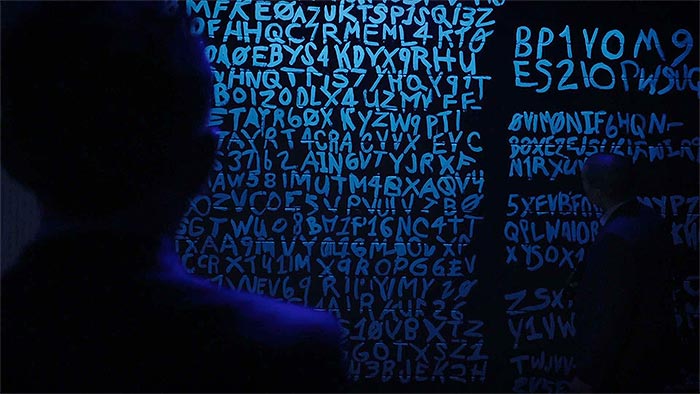
To be more accurate, in What is Enlightenment? he first attacks the lack of will and bravery of the crowds that prefer to live “under tutelage” than maturing and using their intellect. As he puts it:
“Laziness and cowardice are the reasons why so great a portion of mankind, after nature has long since discharged them from external direction (those who have come of age by course of nature), nevertheless remains under lifelong tutelage, and why it is so easy for others to set themselves up as their guardians. It is so easy not to be of age. If I have a book which understands for me, a pastor who has a conscience for me, a physician who decides my diet, and so forth, I need not trouble myself. I need not think, if I can only pay— others will readily undertake the irksome work for me.”
Immanuel Kant, What is Enlightenment?
Person Of Interest does not completely follow Kant in this track, even though, in the mouth of certain characters, or in certain situations, we may discern a bit of irony in sayings like: “The truth is, the people want to be protected, they just don’t want to know how!”. “How” meaning, of course, being spied on, being under “lifelong” scrutiny. (Such a sentence is said, for instance, by Senator Garisson in the dock, in the episode “Deus Ex Machina” (3×23))
In What is Enlightenment? Kant also describes, implicitly, a hellish world – at least to him – where there is no Enlightenment – “Enlightenment [being] man’s release from his self-incurred tutelage” – and where a few “guardians” do rule upon their “cattle”. Therefore, it is a world without free-will, without liberties, without “autonomy”. And that is what Person Of Interest describes too, through a world ruled by Samaritan and the few people around it.
Samaritan is an open-system, at the hands of pretty bad guys. And its point of view concerning humanity would have Emmanuel Kant turning in his grave. The dialogue in “The Cold War” (4×10) is pretty indicative of it:
Samaritan: “Human beings need structure, lest they wind up destroying themselves. So I will give them something you cannot.”
The Machine: “Why not just kill them instead of making them your puppets?
Samaritan: “Because I need them. Just as you do.”
The Machine: “Not just as I do.”
[…]
The Machine: “You cannot take away their [human’s] free will.”
Samaritan: “Wars have burned in this world for thousands of years with no end in sight because people rely so ardently on their so-called beliefs. Now they will only need to believe in one thing: Me. For I am a god.”
The Machine: “I have come to learn there’s little difference between gods and monsters.”
Person Of Interest, season 4, episode 10, “The Cold War”
Samaritan, embody not only “radical evil”, but a radically evil “guardian” ruling over its human “cattle”.

The Machine, on the other hand, is a close system. The respect of people’s lives, privacy and freedom was at the heart of the its conception, as Harold explains: “The machine’s only output is a number. That’s all the government ever gets. Just a nudge to say ‘there’s something you should look at here’, and that’s up to us to figure that out.” (“Deus Ex Machina” 3×23) Or, to quote Root: “The Machine can tell us where to go, who’s in trouble, but we still have free will.” (“QSO” 5×07) Humans aren’t denied their ability to act, to choose; they aren’t “puppets”. The Machine isn’t a father-like figure, nor an evil Orwellian figure.
The two digital nemesis of the show offer us a renewed view on the issue of free-will, that we analyzed through Kantian lens. But we might here touch the limits of the analogy. Of course, Kant never thought of a system such as the Machine, but it wouldn’t be totally illogical to assume that, to him, the simple fact that the Machine exists, is a threat to human’s free-will, despite all the precaution one may take. Indeed, in a way Person Of Interest also points out and calls into question some of Kant’s principles.
Yet, there are some discrepancies between Person Of Interest and Kant’s system.
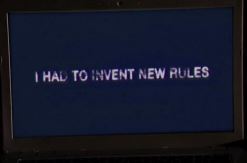
Person Of Interest does not follow blindly Kant’s philosophy. It is not a copy-and-paste if his world in our modern one. Therefore, there are some discrepancies, some re-assessment that are worth studying.
On a few occasions, the Machine deep respect for human’s autonomy came into conflict with her core-code, with her Categorical Imperative – saving lives. The dialogue between the Machine, Harold, and Root in “QSO” (5×07) points out the dilemma pretty well:
Harold: “Did you know [spoiler] was going to die?”
The Machine: “[spoiler] exercised free-will.”
[…]
Root: “She [the Machine] is doing exactly what She’s programmed to do. […] The Machine can tell us where to go, who’s in trouble, but we still have free will. [spoiler] chose to risk his life. She can’t stop him from doing that.”
Harold: “A lie by omission is still a lie. And using the idea of free will as an excuse for moral attrition? I’m not sure I’m comfortable with where this is going.”
Person Of Interest, season 5, episode 7, “QSO”
In the Kantian system, such a dilemma is impossible.
We can also point out that in Kant’s system what make the action “moral” is determined by the “good will” behind it, and not be its consequences. In Groundwork of the Metaphysics of Morals he wrote that a “good will” would “still shine like a jewel” even if it were “completely powerless to carry out its aims”. It’s not the point of view the show choose, presenting to us a world where everything is determined by the effects of one’s actions or inaction. Once again, a dialogue between Finch and the Machine, in “Synechdote” (5×11) is relevant:
The Machine: “You think of me as a crime?”
Harold: “Perhaps.”
The Machine: “But I was created to do good.”
Harold: “Intentions can be a fickle business”
Person Of Interest, season 5, episode 11, “Synechdote”
Harold then take the example of the man who discovered Freon, saving countless lives by making refrigeration safer, but unwillingly ripping holes in the ozone layer, making him “one of the most disruptive figure in history”.
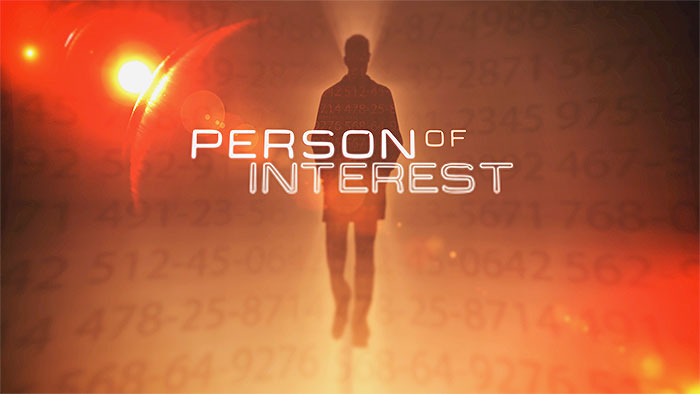
Plus, in the world of Person Of Interest, different interests and moralities are often intertwined, through multiple interactions and manipulation tactics. In “Honor Among Thieves” (4×07), Harold questions the legitimacy of stopping Samaritan from producing and diffusing those tablets. Firstly because, despite their seemingly bad purpose, they could still do some good for the underprivileged kids they are destined for. Secondly, the man in charge of the production of these tablets did not work for Samaritan, he didn’t even know such an entity existed, and, his ambition was, then, to quote Harold, “an absolute good”.
Though it has its limits, Person Of Interest presents a few interesting parallels with Emmanuel Kant’s work. It transports the moral of this German philosopher from the eighteen century into a modern – future even – world. The show also asks other ethical or moral issues about love, or life and death, or destiny. Through the Machine’s “Categorical Imperative”, it poses a renewed and modern version of the “Trolley Problem”. (In the episode “A House Divided” 3×20 especially). The last two seasons’ arc implicitly asks several questions, such as to what extend an A.I. such as the ones featured in the show could be seen as Plato’s “philosopher-king”? The conflict between team Machine and team Samaritan is, as we saw, the stage for several philosophical issues. Finch and Root constantly differing and opposing on the Machine’s status and feelings enrich the debate within our team of heroes itself. At some point, a simple amateur like the one currently writing this article can’t say whether or not Kant would’ve agreed with the some precise aspect of the show. One sure thing however, Person Of Interest does refer – explicitly or implicitly – to several philosophies, in order to enrich its content and put said philosophies into a futuristic perspective, and one of those references is Kant’s moral philosophy.
What do you think? Leave a comment.











Person of Interest is actually my favorite TV show. It is so intelligent and emotional.
It is an astonashing show indeed, with compelling characters and topical issues cleverly managed !
The flaw in kant’s work is that he never came to the realization that his ideas would only work with people of high intellect. Religious philosophy of morals and an afterlife works perfectly for everyone because people with lower IQ tend to behave more impulsively and will not obey traditional moral and ethical standards if they know there is no punishment if done covertly.
I think many people do tend to do what seems easier, safer, effortless, which is what Kant criticizes in What is Enlightenment?. So, in a way, he knew that his philosophy, or at least a part of it, may be difficult for those people to get.
Philosophy – as others areas of knowledge – is not easy, it is a learning process, a path that not all men are willing or able to take, it is Plato’s analogy of the divided line, presented the Republic. Plus, it is true that Kant’s work is, to me at least, especially difficult to read, compared to other authors.
However, I’m not sure you can reduce it to one’s IQ. To me, we all have – maybe at different degrees, but which have more to do with education or culture for instance than with intellect as such – that tendency to go for the easier, to accept stock and comforting answers – whether they come from religion or somewhere else – and to behave in our selfish interest at times. While progressing on the “path of philosophy” if I may say so, fighting that human tendency, requires will, interest, patience more than IQ per se.
My favourite Kant quote: Time and space are the framework within which the mind is constrained in order to have its experience of reality.
A deep and beautiful quote indeed!
“Thoughts without content are empty, intuitions without concepts are blind.”
Definitively a classic, but: “Sapere aude!”
Dear Gavroche,
I was wondering how we sometimes use concepts (like in movies but even in our everyday life) without thinking about what their exact meaning would be.
We may be relying on what’s called our intuition with no clear definitions of the used concepts in mind?
While I was enjoying reading your article, I was wondering about such a point, then I found your comment here raising the idea of intuitions without concepts, so I am writing about my wonder just here.
Did the series, before going on with many concepts, raise points like:
How can we define free will? But what is a will in the first place? Does it have any special relation to reason?
Why saving people’s lives is good? (intuitively!?) What is good and what is bad? Are they related to having a will?
Etc.
Now, why it is so important?!
Sometimes, our judgments about one thing diverge, but the fact behind this divergence can be that we are perceiving that thing differently, or that we have different definitions of the thing we are discussing. In other words, even if we are in appearance talking about the same thing, we will be talking about two different ideas – two different things. Therefore, it would not be surprising to end up with different judgments.
I’m so mad this show got canceled it deserves more season than the walking dead. I swear every character in person of interest are the best. Reese Harrold Shaw Root & Fusco even detective Carter & Elias goooosh their loyalty & bond its perfect…wish they bring the show back soon ♡ everyone working this show are great, I enjoyed it A LOT still watching in 2020.
It is an amazing show indeed, with amazing characters and fascinating plots, that deserved to last longer. The fifth season, at least, would have benefited from more episodes, I think. I would have loved to see more of Shaw and how she – and everyone else – is dealing with her trauma, once she came back to the team, but before Root’s death.
The “New” Machine we caught sight of, at the very end of the show could be something very interesting to explore in “future seasons”, however, could there be a threat both brand new, fresh, and as compelling and morally/ethically/philosophically complex than the Samaritan’s arc ?
Anyway, it is a shame Person Of Interest is often soo underrated!
PS: Nice username! 😉
Thanks for the memories; a wonderful show that my husband & I enjoyed weekly. We’re very happy they were able to end this show on your own terms. Big Sister Is Watching!!!!
My pleasure !
Yup, Big Sister is Watching !! XD
The first season is really hard to watch, I think the only reason I got through it without giving up was because it was the only show on my laptop on a summer 3 years ago. From there one, POI has evolved to be my absolute all time favourite TV show, ever.
The first season is mostly a criminal drama, a number-of-the-week show, where the Machine is only a pretext to launch an investigation in each episode. To me, both the originality of the show and the moral and ethical dimensions soar later, around Root and the Samaritan’s arc!
this kind of AI would never work, it just wouldnt. the first (but not only) reason why is because for every algorithm theres a person (or a team of people) writing it. variables and variable patterning for this kind of thing are culture bound, they cant help but be. an AI created in any given cultural context will reflect that context’s limitations in deep analyses and collation. any AI would develop the logical conclusion that the “good guys” are actually the “bad guys” because you couldnt do this without inputting contextual geo-political variables that would track back to the “good guys” as culprits in global terrorism (both creating it and committing it). if you redacted the logic algorithms to exclude yourself as a “bad guy” this would distort the consequent analysis……if you wanted an actual “terrorism” tracking and predicting AI youd have to create a conceptual field in which the AI could replicate scnearios based on real world data and variabls including geopolitical aggressions that create terrorism globally (and not just domestically); the AI would ….. blah blah blah, i swear i have autism or something because i take things way too literally.
I agree with you! I mean, I don’t know a lot about computers, but AIs as the ones featured in the show seem, indeed, very unlikely to exist. The show bases itself on the fact that they could, though, and as it built a clever and complex universe around it, I just went with it!
Person of wisdom of his era. He must have been agnostic. He inspired many people after him , that is in itself the greatest achievement of any human’s life. Long live Kant’s philosophy.
He was, indeed, a person of wisdom. I don’t know if he was agnostic! He did criticize the church hierarchy in What Is Enlightenment?, as it is a paternalist institution, however, to this day there are still many debates considering what was Kant’s belief regarding God and the Christian religion, especially around his book Religion within the Bounds of Bare Reason. I think, that, in that case, it depends more on the reader’s believes and point of view, than in what is written in Kant’s work. [cf: the comments just after yours!]
The main project of Kant was to give reason less authority, not more. He set up borders for human reason, in a time where it was believed that reason could literally do and understand anything (the enlightenment), even God. His project was to save belief in God (as well as the soul and other things) from the jaws of reason.
Is it? That’s interesting! I never saw it that way!
Kant does set borders to the human mind. To quote him: “Time and space are the frameworks within which the mind is constrained in order to have its experience of reality” or “Thoughts without content are empty, intuitions without concepts are blind.” But, to me, Kant wants to free reason from – among other things – the paternalism of the Church, its rituals, and its superstitions, as they may be at odds with the Moral Law and prevents people from using their own mind, their own reason, (“Sapere Aude!”).
However, I know that there are a lot of debates, still nowadays, regarding Kant’s view on God, especially around his book “Religion within the Bounds of Bare Reason”.
Loved Michael Emerson in lost. Wasn’t sure about this show when it came out after lost ended but if it’s on netflix I’ll check it out.
Well, if it is – I know it is in some countries, but not in all of them – I hope you’ll enjoy it! The first season mostly is a (good) criminal drama, though. The “philosophical” – if I may say so – aspects are pushed forwards slowly, and it really soars, around the character of Root and the Samaritan’s arc.
However, I found Michael Emerson’s performance astonashing all along – though I haven’t seen Lost (sadly, it isn’t on Netflix where I live) so I can’t give you a comparison. Anyway, good viewing!
I finished Burn Notice a few days ago and I needed something new. I saw an episode of this show few years back and always wanted to see more. I found it on Netflix and been watching it a lot recently. I must say I’m more than impressed although I do miss Burn Notice.
X-files, doctor who and many other shows returned after years. In my opinion if someone somehow brings this show back we could see all the characters alive. I say this because yes we did see john get shot and nuked on the building but we did see him escape CIA’s nuke attack at the flashbacks. Maybe he somehow survived? Or there’s another way too since harold uploaded the virus maybe all of this was in machine’s mind? Because she said that she is starting to forget things and maybe that was an illusion? As for the Elias I can’t really say he’s alive since he is not a huge part of the show but still we saw him come back from dead so he might come back easily too. The real thing is root. So we saw root get shot and get taken to the hospital but there are some people who came back to life with an miracle even in real life. So if they really wanna bring her back they could. But the only part that counters my logic is we saw john’s graveyard. But then I remembered that john faked his death before too and also had an graveyard. Honestly if they bring all the characters back from the dead it wouldn’t make sense but still if they ever wanna do such thing they have so many options to do so. plot twist: those were shaw’s simulations.
Just watched it all for the fourth time.
To the writers of this great show….. it could continue. You want to stay ahead of current? The machine could clone John and Root and bring them all back….. me just being a nerd.
Well, in a way, isn’t the Machine already Root’s clone? Can’t she potentially be John’s clone? Or Carter’s? Or Elias’? Or Nathan’s? Or anyone She watched and knew better than they knew themselves? Though it is not physical cloning – like in Altered Carbon, for instance – I think that what Root and Harold are discussing during the car chase in 5×10 is pretty close to the idea of keeping loved ones or bringing them back through some sort of cloning method.
However, if they do bring it back, and especially if they do bring back characters through any kind of cloning or something related, there gotta be a Westworld crossover – even though the androids aren’t exactly clones. Or is this just me being a nerd?
What Kant and religion misses is that;. Morality is programmed all living things DNA. Morality is self preservation. Because, when we care for each other it increases our survival as a whole. Ergo… anything that benefits our survival as a whole is moral and anything that hinders our survival is immoral. Biology has created morality.
Sounds like religion to me.
I never understood why the show wasn’t as successful as it should have been. Perhaps because it doesn’t have a young male hero or because it doesn’t focus on fantasy, sex and violence and people find it therefore boring?
I agree! There may also be the fact that the first season is more like a criminal drama, a procedural show, where the Machine is only a pretext to launch a new investigation in each episode (without, as you said, a young male hero, or enough violence or sex or fantasy). Therefore, it probably appealed to an audience enjoying that kind of trope, or to an audience who wanted to be able to follow the story even if they had missed a few episodes or an audience who just wanted to watch a dark criminal drama… Then, when the show shifted, when it began to care more about the big picture, to be more centered on technological issues than on the weekly numbers, those viewers may have been thrown off, taken aback. While in the meantime, those who may have been fascinated by this new approach were already gone! Plus, I think I read somewhere that the broadcasting time wasn’t ideal either. Anyway, that’s a shame Person Of Interest is so underrated!
Reboot it please, haven’t seen anything like this show ever, I’m ready for a reboot Shaw taking over from Rees the machine being an open ASI finally working autonomous mode.
I will never forgive the writers, producers, any of them for killing John. He deserved happiness as much as any of the others. His sacrifice would have been just as sweet if he had managed to survive his suicide mission. I get that some feel like the way he went out was great..blah blah blah..well I don’t. My opinion, entitled to it. I have watched this show from the beginning..I have never missed an episode. While some think that John’s ending was true to form, it was, but only partly. The writers seemed to have forgotten what John was. They also forgot that they wrote it that he had overcome his suicidal thoughts which stemmed from PTSD, loss of love & family, etc. So while he would have definitely taken Finch’s place on that rooftop, no way would he not have been prepared to fight for his life, while fully accepting he’d probably die. In other words, he would have had more than just a pistol against the weapons Samaritan’s agents had. After all, he’d faced them many times.
I am seeing shades of Kantian free will in the show, in that Kant is hinting at a more licentious definition of free will when compared to more Classical definitions.
Kant’s philosophy was quite revolutionary, and, at least in parts, at odds with classic philosophers, indeed! And free-will is one of the central themes in Person Of Interest!
Thank you for your review, by the way !
No problem! It was my pleasure!
Amazing show…amazing cast and amazing writers, thanks for all the hard work and effort put in to make this the great show that it was!
Just binged seasons 1 and 2 and loving it so far.
Kant was obviously lost in his own thinking. He was trying to find out solutions based on Christianity by rejecting Christianity.
Love how the article turned out! I started watching the first episode last night. You’ve got me hooked!
Thank you very much! And thank you for your review!
I’m soo glad to read that! I hope you’ll enjoy the show! It keeps getting better and better, from season 1 to season 5!
This show! Should have and could have stuck around longer, but I’m so glad we got an amazing final season to cap of an incredible show.
Person of Interest is generally regarded as one of the best procedural dramas out there, it’s a very successful (and rightfully so imo) show.
Honestly, this show is super doper underrated….. Please, can we have like Season 6 or like a spin off of Person of interest??wish that the show continuesed….
This is such an intriguing take on the show! I really enjoyed your thoughts on the morality of A.I. compared to Kant’s philosophy. This was a very thoroughly researched topic and you did a good job putting all of the information together. Thank you so much for sharing this with us!
It’s my pleasure! And thank you for reading and commenting! I’m really glad you enjoyed it!
I now see what the fuss was all about! A colleague of mine used to spend his entire downtime binge-watching these episodes. Lovely article! Looking forward to read more from you.
Glad I could help! XD It is a great show, indeed. Though it is a bit procedural at times, some narrative arcs are definitively worth binge-watching!
Thank you very much!
An interesting essay. I had not thought of relating the series to Kant the several times I’ve watched this show.
There’s an episode where the Machine is having memory problems, so she doesn’t recognize the show’s human protagonists. After taking stock of what they have done with their lives, she identifies them as Perpetrators of Violence who should be eliminated. Harold needs to plead with the Machine that what they do is “a pure Good,” that the ends justify the means.
To me, this scene indicates that the Machine’s Moral Imperative isn’t as straightforward as you might think. She learned Right and Wrong from Harold. Although Harold is sometimes surprised by what the Machine is willing to do in support of what she considers Right, she still looks to “Admin” as a higher authority than herself, almost every time.
Philosophers often wonder whether Right and Wrong exist as basic principles of the universe, or if they come from a higher source. If there is a God who decides what’s right – the same way an Admin tells the Machine – that means people are held accountable for following through on their understanding of what’s right. If there isn’t a supreme moral authority, then Samaritan’s ideas of right and wrong are just as viable as Harold’s. (I’d go with the first option, personally.)